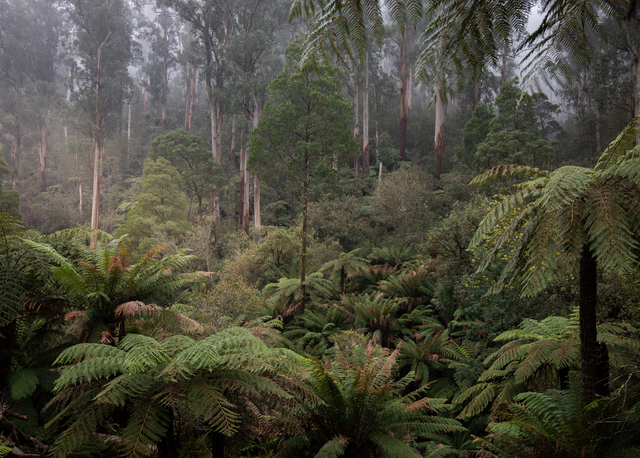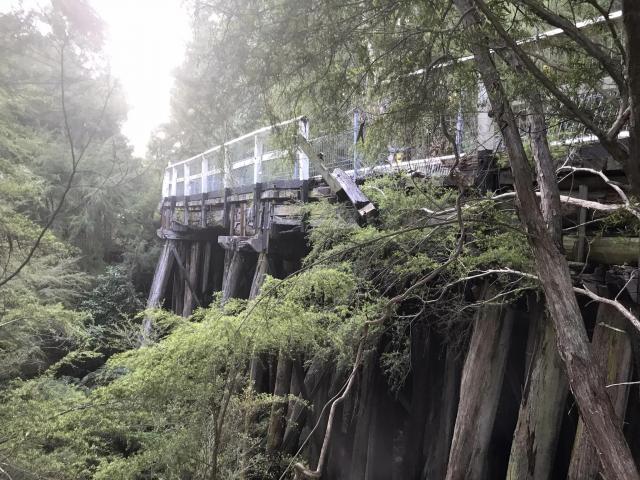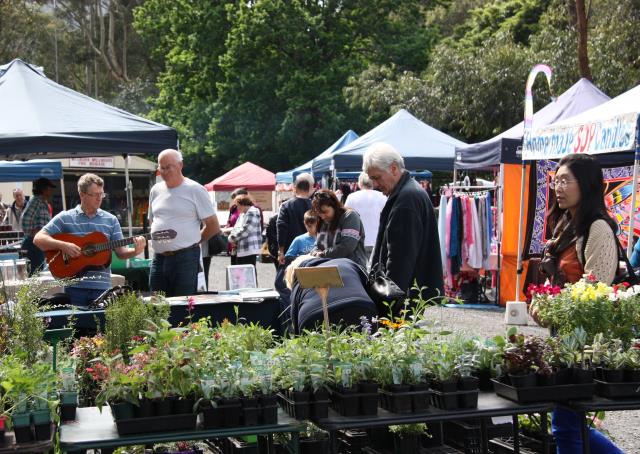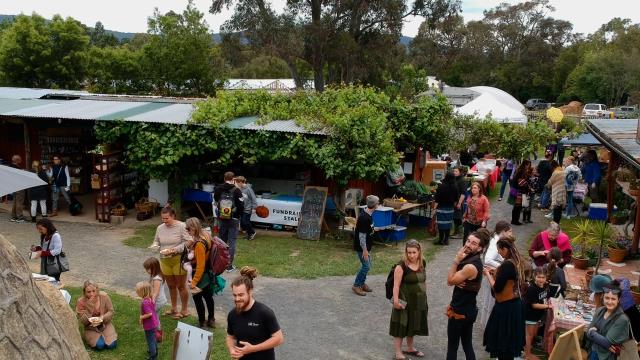Warburton Environment (WE) has lodged a case in the Federal Court against the Victorian Government following the death of a greater glider in the Yarra Ranges National Park in what has been a turbulent few months in the local forest.
WE are seeking injunctions from the court to halt what they call ‘logging’, and the Department of Energy, Environment and Climate Action (DEECA) insist is the ‘removal of hazardous trees for bushfire risk mitigation’, carried out by Forest Fire Management Victoria (FFMVic).
President of WE Nic Fox said it’s outrageous that community groups are forced to take legal action to stop the Victorian Government killing endangered wildlife.
“Community groups shouldn’t have to continually fight their way through the legal system to make the government accountable to its own laws and policies,” she said.
“Logging clearly isn’t finished in Victoria, it’s just business as usual under a different name,
and even Victoria’s most iconic National Parks aren’t safe from the government’s logging industry.”
The forest in the Central Highlands, including the Yarra Ranges National Park and the Yarra State Forest, has been caught up in the furore of what steps should be taken next following the end of native forest logging in Victoria that began on 1 January. The Victorian Government declared that an advisory panel would determine opportunities to qualify the 1.8 million hectares of forest previously slated for logging for expanding National Parks, land management by Traditional Owners and recreation opportunities such as camping, hunting, hiking, mountain biking and four-wheel driving.
In the immediate aftermath of the native forest logging announcement, the Star Mail spoke to the Founding member of the Great Forest National Park (GFNP) proposal and Toolangi resident Sarah Rees, who said the proposal had been a long process.
“What came to the public in 2013/14 as a result of the Black Saturday fires was a push to conserve the last unburnt and unlogged areas, to ensure species persist in the landscape, we protect our water, we keep our best carbon stocks in the land and ultimately to also rebuild and reenergize regional communities with recreational opportunities,” she said in May 2023.
“What will also be important is the deployment of people who are really good at managing this land to get out there, we’ve got to keep our fire breaks open, we’ve got to keep our roads open so hopefully we will see jobs increase, not decrease.”
The Victorian Government’s Eminent Panel for Community Engagement began targeted initial conversations in November and December 2023 before opening up public consultation from 18 March to 6 May this year, which included local community engagements in the Yarra Ranges, Cardinia, Mitchell, Murrindindi and Baw Baw areas. The panel’s report is set to be handed down in June 2024 with the State Government to consider it over the coming months.
On the other side of the coin, a significant movement has also started to keep state forests accessible for recreational activities, with hundreds gathering at a rally in Drouin on Sunday 26 May.
Bush users fear that the Eminent Panel report will favour the recommendation of the Victorian Environmental Assessment Council (VEAC), which put forward that 300,000 hectares of state forest would be suitable to be considered national parks, similar but not quite as expansive as the GFNP proposal.
In late May, a coalition of the Australian Deer Association, Australian Bowhunters Association, Field and Game Australia, the Gippsland Deer Stalkers, The Sporting Shooters Association of Australia (Victoria) and Dog Hunters Victoria announced they are united in retaining public land access, representing a membership of over 70,000 Victorians and the interests of a quarter of a million recreational shooters and hunters in Australia.
The Australian Deer Association’s head of Advocacy, Sean Kilkenny told the Star Mail this is a huge amount of public land that recreational users have sustainably used for over a hundred years.
“The groundswell of public support to maintain the status quo is a testament to the value placed on this land by recreational users and we are encouraged by the government’s establishment of the Great Outdoors Taskforce; it demonstrates a recognition of the sustainable use of recreational activities in the bush,” he said.
“A national park was only floated to end native timber harvesting; with that now ended, the campaign for a national park ends with it.”
In April, environmental groups including WE, Wildlife of the Central Highlands (WOTCH), Forest Conservation Victoria and the Victorian Forest Alliance began to raise concerns about tree removal works being carried out by FFMVic in the existing national parks, including the Yarra Ranges National Park, with peaceful protests held to campaign against works being carried out in areas that the endangered Southern greater gliders and critically endangered Leadbeater’s Possums among other species call home. The groups also claim they reported areas and specific trees that greater gliders were spotted in which were still cut down.
A spokesperson for WOTCH Hayley Forster said they’ve had enough.
“Victoria’s own Environment Department is knowingly killing threatened wildlife,” she said.
“They are logging our iconic wildlife into extinction under the guise of fire management, all whilst marking their own homework to greenlight dodgy loophole logging operations.”
WE allege that the removal of trees is a federal offence under the Environment Protection and Biodiversity Conservation Act (EPBC Act), including pointing to one tree cut down on Friday 24 May measured almost 9.5 metres in circumference and should have been protected according to state prescriptions to preserve large trees with a diameter over 2.5 metres as well as the death of the greater glider.
WE’s solicitor Jamie King said the Commonwealth, in keeping with its international treaty obligations, has enacted laws prohibiting unauthorised actions likely to have a significant impact on threatened species.
“The Victorian government is engaging in criminal conduct by its unauthorised destruction of important habitat for the endangered Southern greater glider and critically endangered Leadbeater’s Possum,” he said.
The group also hopes the court action will put pressure on Federal Environment Minister Tanya Plibersek to enact compliance and enforcement action, having also pointed to inconsistencies in the actions of FFMVic with Ms Plibersek’s ‘National recovery plan for Leadbeater’s possum’ released in March. The environmental groups have also warned Ms Plibersek in a letter that former VicForests contractors ‘cannot be trusted to protect critical habitat.’
The Victorian Forest Alliance and its President Dr Sue Lewis have also pledged support for its member group, WE.







